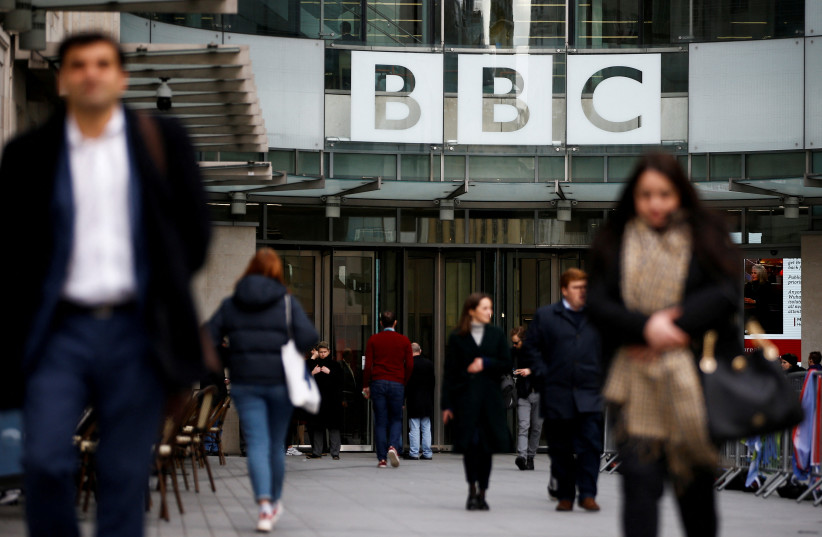The BBC overemphasizes the "illegality" of Israeli settlers while failing to report on the illegality of terrorism, Religious Zionist Party MK Ohad Tal wrote in a letter he sent to BBC Director-General Tim Davie on Sunday.
In the letter, Tal demanded that the BBC update its guidelines for reporting on Israel, settlers and terrorism.
As they currently stand, the BBC's guidelines encourage reporters to "include context to the effect that 'all settlements in the West Bank, including east Jerusalem, are considered illegal under international law, though Israel disputes this’."
The guidelines for writing about terrorism, on the other hand, actively discourage the use of the word "terrorist" or "terrorism" if it is not being used in a quote.
"Nothing could be more ironic than the BBC repeatedly insisting and disseminating that settlements are illegal while refusing to stipulate that terrorism is illegal."
MK Ohad Tal
"Nothing could be more ironic than the BBC repeatedly insisting and disseminating that settlements are illegal while refusing to stipulate that terrorism is illegal," wrote Tal in the letter.

Tal went on to list a series of recommendations for the BBC to update the guidelines:
- If settlements are going to be referred to as illegal in BBC articles, then so should terrorism.
- BBC articles should reflect that Israeli settlements rely on the opinions of experts versed in international law.
- BBC articles should specify that the position of the UN Security Council on Israel and the West Bank is a non-binding political position and not a legal one.
- The BBC should not require the mentioning of settler illegality whenever settlers are mentioned.
In cases in which the BBC feels it necessary to discuss the illegality of settlements, it should say something such as “Many international lawyers argue that settlements are illegal. However, this is disputed by other international lawyers as well as by Israel and the United States.”
Tal added that adopting these recommendations may help British Jewry because "incessant attribution of alleged lawlessness to the only Jewish state in the world, by the UK’s national broadcaster, cannot but create a self-righteous tailwind in the UK, fanning latent prejudices against British Jews to overt and dangerous levels."
At the end of the letter, Tal presented a series of articles from the last couple of years in which the BBC reported about settlements and called them illegal. He then presented a list of occasions in which terrorist organizations like Hamas said that terrorism was a "natural response to the crimes" of Israel. Tal compared the BBC guidelines to terrorist rhetoric, saying that reporting like the BBC's fuels terrorist organizations' justifications with the same logic
The BBC was investigated for its reporting on Israel and Jews
In November, the BBC apologized for its anti-Israel bias in its reporting, and a month later, the corporation was faced with an investigation conducted by government members into its reporting on Jews and Israel.
The investigation came after the British paper The Jewish Chronicle started a petition for a probe to be launched into the BBC's impartiality.
UK communications regulator OFCOM also criticized the BBC's coverage of antisemitic affairs after the network reported that a group of Jews who were attacked in London were calling out anti-Muslim slurs to the attackers. This was later proven to be untrue.
